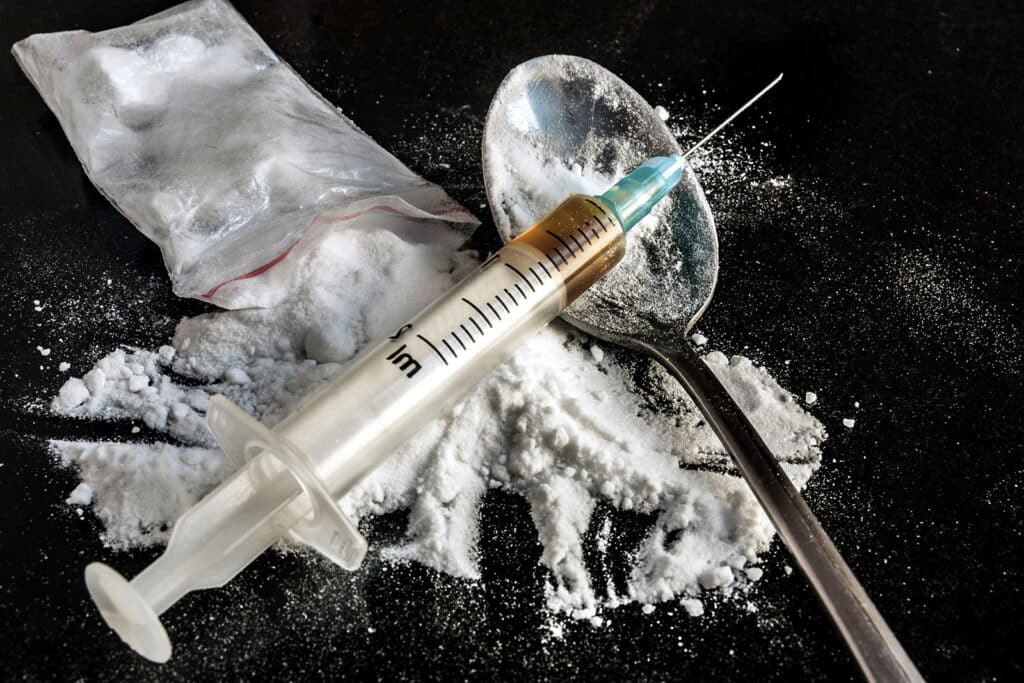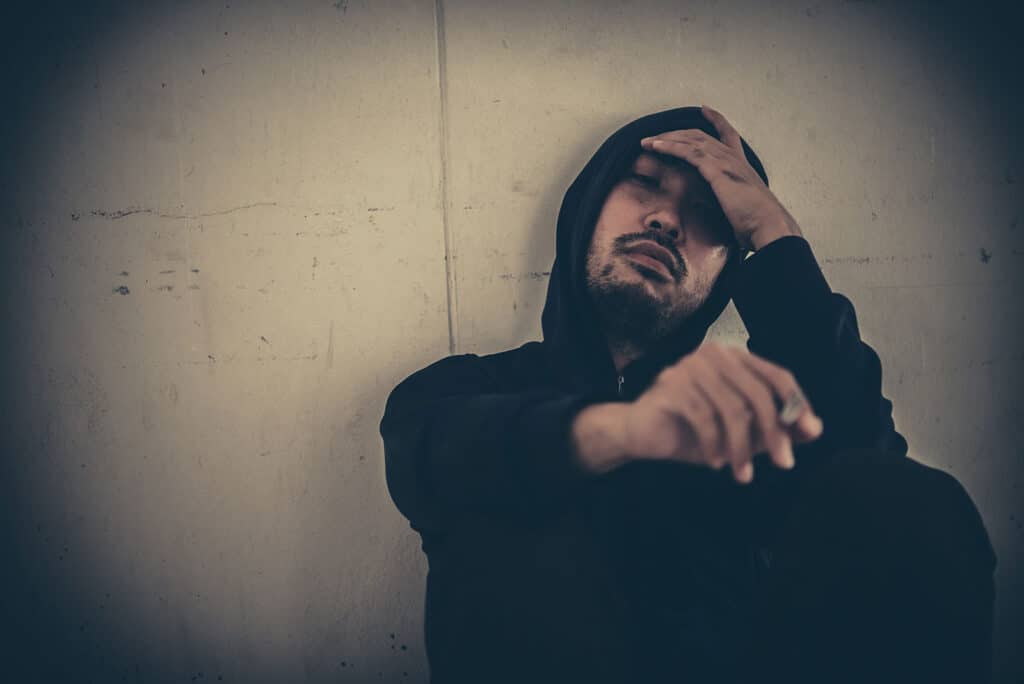Heroin Addiction Treatment in New Jersey
Heroin, a powerful opioid, takes hold of countless lives in New Jersey. It’s no secret, as the government issued a study that showed that 75% of overdose deaths were related to using an opioid like heroin. Moreover, according to a government report published in 2022, 36% of people being treated for substance abuse were battling heroin addiction.
The impact goes beyond the risks of overdose. Unfortunately, even those who don’t die because of a heroin dose will suffer from many physical and psychological issues. These lead to more stress, which makes them use heroin in higher doses.
But there’s hope. In New Jersey, several treatment plans exist to help you or someone you love overcome addiction. If you or someone you know is struggling with quitting heroin, this article is for you.

What is Heroin?
Heroin is a powerful highly addictive opioid drug made of morphine, a naturally occurring substance extracted from the seed pods of some varieties of poppy plants.
This drug belongs to a class of drugs known as opiates, strong depressants that slow down brain functions and can be used to relieve pain. Heroin is usually sold as a white or brown powder, although it’s also available as a black sticky substance known as heroin tar. These color differences are related to the production and processing methods.
People can abuse heroin by smoking, injecting, or snorting it. Heroin can be mixed with other substances to increase its profitability. Unfortunately, these substances make it even more dangerous to use.
How Do People Become Addicted to Heroin?
People become addicted because of the intense feelings of relaxation they feel after smoking, snorting, or injecting heroin. It quickly crosses the blood-brain barrier and binds to the opioid receptors, pushing the brain’s reward system to produce dopamine, a neurotransmitter related to pleasure and happiness.
Over time, the system becomes unable to function independently. With repeated use, people become aware that they need to consume more heroin to experience the same happy feelings. The brain adapts to the drug’s presence, and receptors become less sensitive.
The whole body becomes reliant on the drug to function normally. When people stop using heroin, they start experiencing painful physical withdrawal symptoms that make them uncomfortable and tired.
In addition to the physical symptoms, people develop a firm belief that they can’t function without the drug. They experience intense feelings of discomfort and become preoccupied with obtaining the drug.
What are the Side Effects of Using Heroin?
Using heroin results in short and long-term side effects that negatively impact life and its quality. They might even result in a permanent disability or death.
Short-Term Side Effects
Apart from the rush that most people experience, people who use heroin start experiencing negative side effects as soon as the drug gets into the bloodstream.
Respiratory Depression
Heroin is a central nervous system depressant, and it slows down the rate and depth of breathing. It can lead to hypoxia, a condition where the brain is deprived of an adequate oxygen supply. This can lead to loss of consciousness, coma, brain damage, or even death.
Constricted Pupils
Opioid miosis or pinpoint eyes represent the brain’s natural response to the consumption of heroin. The brain sends a warning message, asking the body to slow down.
Digestive Issues
People usually experience indigestion, nausea, and vomiting when they take heroin for the first time, take high doses or their heroin is contaminated.
Using heroin causes constipation, which becomes chronic. It happens because the drug inhibits gastric emptying and increases the absorption of fluids. Without enough fluid in the intestines, the stool becomes too hard to pass.
Decreased Mental Alertness
Heroin impairs cognitive functions and mental alertness. People will experience confusion, brain fog, impaired judgment, inability to focus, and delayed response and reaction times. Patients will also experience lethargy and sleepiness. They’ll struggle to stay awake for extended periods.
Reduced Blood Pressure and Heart Rate
Heroin increases parasympathetic activity. It reduces sympathetic activity, leading to a low heart rate and blood pressure.
Skin Issues
People who use heroin start experiencing flushing or itching, in what is known as the heroin ithc. The urge to scratch the skin becomes so intense that people break the skin, which leads to serious infections. People can also develop abscesses from injecting heroin.

Long – Term Side Effects
The short-term side effects worsen with time, and users experience serious long-term side effects.
Physical Health Complications
Continuous use of heroin is directly related to severe infections as it suppresses the immune system. Injections are associated with blood-borne infections like hepatitis B and C, in addition to AIDS. These infections can lead to permanent liver damage and death.
Intravenous heroin use leads to collapsed veins, venous ulcers, and blood clots. Snorting and smoking heroin are linked to chronic bronchitis, pneumonia, and respiratory depression. These issues cause lung failure and lead to death when left untreated.
People struggling with heroin addiction experience cardiac arrhythmias, inflammation of the heart lining, and eventually fatal heart attacks.
Moreover, injecting heroin using unclean syringes and needles increases the risk of bacterial and viral infections, due to needle sharing and poor hygiene.
Mental Health Complications
Chronic heroin use causes severe mood swings and disorders like irritability and depression. Prolonged use of heroin causes irreversible cognitive impairment, like memory loss and decreased attention span.
Psychological, Social, and Economic Complications
Long-term use of heroin leads to intense compulsive drug-seeking behavior. People put themselves in dangerous situations to get the drug, even when they’re aware of the dangers associated with using it.
They become socially withdrawn and isolated because they prioritize using the drug over relationships and responsibilities.
With collapsing family, personal, and professional relationships, people experience more conflicts and emotional distress. Their loved ones also struggle as they try to help them overcome their addiction.
Moreover, maintaining a heroin addiction is financially stressful. People might lose their jobs and income sources, so they consider stealing or committing other crimes to get money to pay for their drugs.

Quitting Heroin: What are the Options?
A heroin overdose is a significant risk that every heroin user should consider. But this doesn’t have to be the end. There are several options available to help you overcome heroin addiction and get your life back.
Medical-Assisted Detoxification Programs
These are medically supervised treatments. Several medications like lofexidine, Methadone, and Buprenorphine help manage painful withdrawal symptoms like diarrhea, nausea, and vomiting and make quitting more doable.
The treatment reduces discomfort and increases the likelihood of continuous sobriety in cases of moderate to severe physical dependence on heroin. People are required to pay frequent visits to or reside at a treatment facility. This way, they can be under medical supervision all the time.
Inpatient Treatment Programs
Patients reside in a hospital or specialized treatment facility to receive intensive therapy and 24/7 support. This is the best option for people with intense heroin addiction and co-occurring mental disorders
Treatments usually last 30 to 90 days, and sometimes more, depending on the addiction’s severity. Patients benefit from a highly structured and supportive environment, where they have access to medical and psychiatric care. This treatment option separates patients from triggers and temptations that often lead to relapse.
Nevertheless, the lengthy duration and high costs make this option less accessible. It also represents a long-term commitment that disrupts professional and personal obligations. However, it might be the best treatment for people with a history of unsuccessful outpatient treatments.
Residential Treatment Programs
People who lack social support or live in unstable environments benefit from this treatment program. It offers a structured living setup where individuals participate in therapy, counseling, and recreational activities to overcome psychological triggers that cause addiction.
The supportive and therapeutic community and intensive supervision lower the risk of relapse after patients leave the facility. In most cases, the treatment lasts several months, depending on individual progress.
Partial Hospitalization Programs
PHPs offer intensive treatment during the day while allowing individuals to return to their homes or a sober living facility at night. These programs are less expensive than residential and inpatient treatments and allow patients to maintain connections with family and friends.
Treatment sessions are held several days a week. Their duration depends on individual progress and other issues the patient deals with.
This option doesn’t provide 24/7 support, so it’s suitable for those who live in supportive living environments. Family counseling is needed to help family members understand how to support a patient struggling with heroin abuse.
Intensive Outpatient Programs
IOPs represent another alternative for people who struggle with heroin abuse but live in supportive environments. They can maintain work, family responsibilities, and other commitments while receiving therapy.
These flexible programs provide access to peer support and allow patients to go on with their lives without feeling isolated and disconnected. Therapy sessions are held several days a week, as these programs suit people with mild or moderate addiction.
Nevertheless, they require a high level of motivation. They don’t suit people who are severely addicted to heroin or experience co-occurring mental disorders.
Outpatient Treatment Programs
Outpatient treatments involve regular therapy sessions and attending support group meetings while individuals reside at home or sober living facilities. People can go to work, attend school, and mingle with friends and family while dealing with their heroin addiction.
These treatments are less expensive but will only work for people with mild addiction. They can also work for people transitioning from high-care treatments.
Success is possible if patients are committed to attending regular sessions. These treatments foster independence and self-management skills but can last a year or more, depending on the patient’s progress and commitment.

Aftercare and Relapse Prevention
More than 50% of people who seek treatment for heroin addiction will relapse within the first year. Aftercare programs provide ongoing support, counseling, and resources to help patients stay sober after completing their primary treatment programs.
Aftercare and relapse prevention programs include individual therapy, family therapy, sober living arrangements, support groups, and education to prevent relapse. On-going aftercare sessions tackle the factors that might have caused the addiction in the first place and increase the risk of relapse.
They suit all people who struggle with addiction and are ongoing to support long-term sobriety. Aftercare strategies help patients as they transition to daily life, reinforcing skills they learned during their treatment period.
Family members and friends might be involved in these programs. People who recover from addiction should maintain strong relationships with the recovery community, where they’re encouraged to stay focused and accountable.
In addition to these programs, patients should explore stress management skills and techniques like mindfulness practices and hobbies that keep them occupied.
Full recovery is possible, so keep yourself surrounded by a close community of trustworthy friends and family members who will monitor your progress and offer help when needed.
Conclusion: Getting Treated for Heroin Addiction in New Jersey
Heroin addiction is life-threatening, but it’s not the end. Every step you take towards recovery is proof that you’re strong and resilient.
Recovery is a self-discovery journey that involves learning new skills to help you navigate life challenges without the drug. Setbacks may occur, but they represent learning opportunities to help you grow.
If you or a loved one struggles with heroin addiction, know that you aren’t alone. There’s a supportive community in New Jersey, ready to help you with a tailored treatment plan to help you get your life back together.
References
- https://www.cdc.gov/injury/budget/policystatesnapshots/NewJersey.html
- https://www.nj.gov/humanservices/dmhas/publications/statistical/Substance%20Abuse%20Overview/2022/Statewide.pdf
- https://www.ncbi.nlm.nih.gov/pmc/articles/PMC2704563/
- https://www.ncbi.nlm.nih.gov/pmc/articles/PMC4482114/
- https://www.frontiersin.org/journals/psychiatry/articles/10.3389/fpsyt.2024.1354722/full
- https://www.ncbi.nlm.nih.gov/books/NBK493184/#:
- https://www.webmd.com/digestive-disorders/chronic-constipation-affects-body
- https://www.ncbi.nlm.nih.gov/pmc/articles/PMC1121066/
- https://www.ncbi.nlm.nih.gov/pmc/articles/PMC2851502/
- https://pubmed.ncbi.nlm.nih.gov/21448097/
- https://nida.nih.gov/publications/research-reports/heroin/what-are-treatments-heroin-use-disorder
- https://www.ncbi.nlm.nih.gov/pmc/articles/PMC4014033/
- https://www.cga.ct.gov/2016/rpt/2016-R-0248.htm#
- https://www.ncbi.nlm.nih.gov/pmc/articles/PMC4772197/

